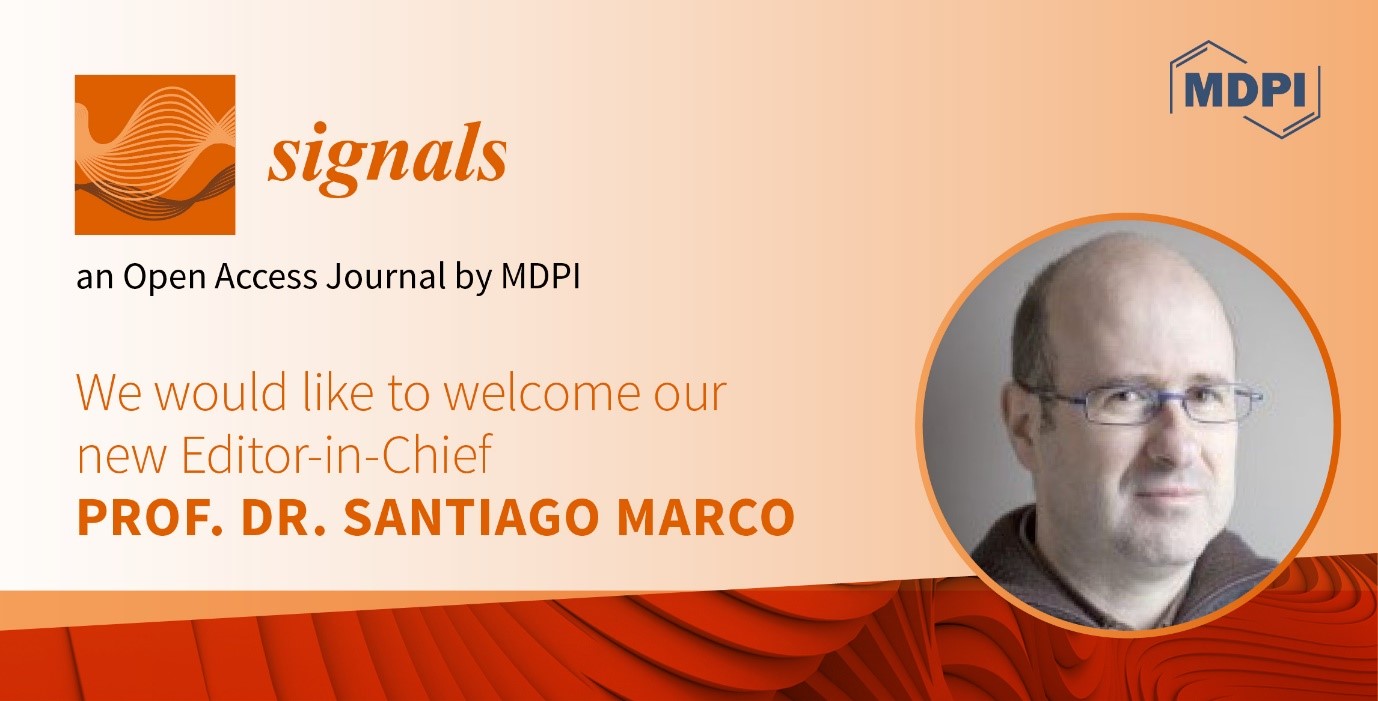
Prof. Dr. Santiago Marco Appointed Editor-in-Chief of Signals
We are pleased to announce that Prof. Dr. Santiago Marco has been appointed Editor-in-Chief of Signals (ISSN: 2624-6120, https://www.mdpi.com/journal/signals).
Dr. Santiago Marco is a Full Professor (since 2020) at the Department of Electronics and Biomedical Engineering at the University of Barcelona (UB), in addition to being a Group Leader (since 2008) at the Institute for Bioengineering of Catalonia (IBEC). He completed his university degree in physics (1988) and his Ph.D. (1993) from the UB. Then, he held a postdoctoral position at the Department of Electronic Engineering at the University of Rome “Tor Vergata”. In 1995, he became an Associate Professor at the UB. In 2004, he had a sabbatical leave at AIRBUS-Munich, working on ion mobility spectrometry. His research interests are in signal processing and machine learning for chemical instrumentation. He has published around 140 archival papers (75% in Q1) and six patents.
The following is a short Q&A with Prof. Dr. Santiago Marco, who shared his vision for the journal as well as his views on this research area:
1. What appealed to you about the journal that made you want to take the role of Editor-in-Chief?
MDPI has been successful in promoting the open access publishing model, and it has highly efficient mechanisms for manuscript processing as well as paper publishing. I am ready to accept the challenge to make Signals a leading journal in the field of signal processing for a variety of applications, with the help of a committed Editorial Board.
2. What is your vision for Signals?
Signals are everywhere: multimedia, communications, audio, music, automotives, control systems, biomedicine, etc. However, some signal processing areas have been traditionally underrepresented in signal processing journals. We have exciting new developments in analytical chemistry, vibration, and structural analysis, neuroscience, geophysics, omics data science, imaging, multisensory systems, etc. I would like to expand the coverage of Signals to every area of science and technology where signals need to be analyzed to extract the relevant information. We should also promote science reproducibility by encouraging contributors to Signals to share datasets and software tools in open repositories.
3. What does the future of this field of research look like?
The field of signal processing will continue to attract excellent engineers and scientists. We will also see vanishing borders between traditional signal processing and related areas, such as machine learning and image processing.
4. What do you think of the development of open access in the publishing field?
This is clearly the future. The whole global community is moving in this direction.